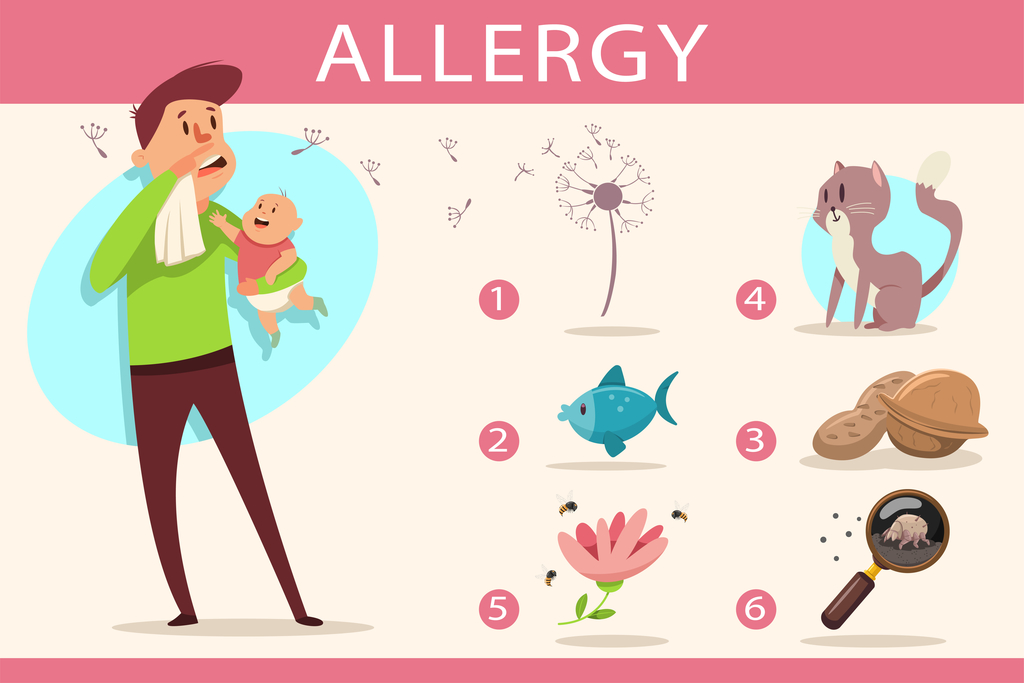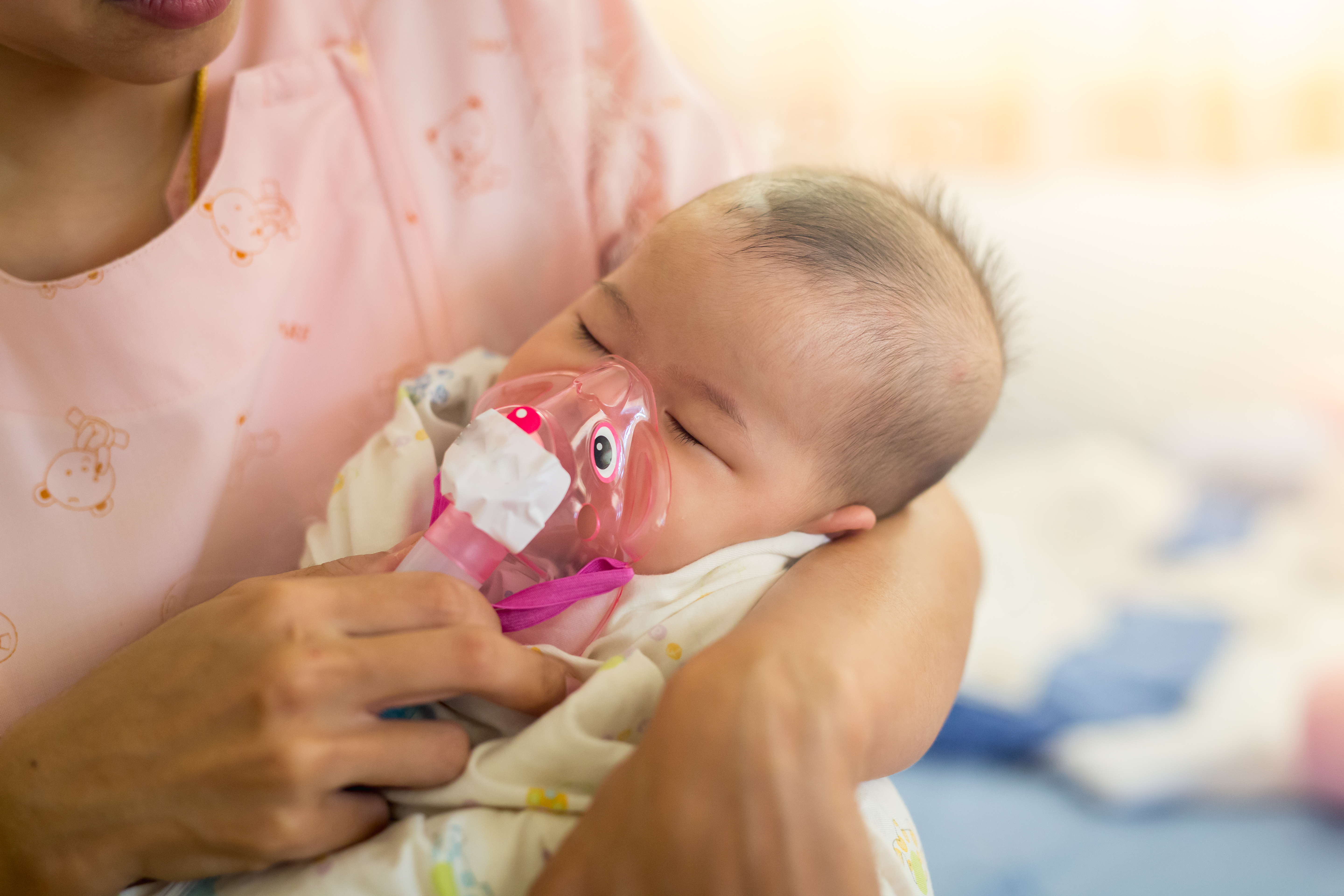Things You Must Know to Care for Babies with Asthma
Asthma is a very common lung disease causes coughing, wheezing, and difficulty in breathing. Researches would say that asthma results from hypersensitivity of the airways. If someone with asthma is exposed to allergens, his or her airway will start to constrict and inflammation of the tissues immediately follows. At the same time, there will be excessive production of mucus in an attempt to clear out the allergens in the airways. A constricted, inflamed airway with too much mucus will really cause difficulty in breathing.
Allergies and asthma usually go together in babies and toddlers. According to Dr. Moss from the University of Wisconsin Hospitals and Clinics, approximately 80% of kids with asthma also have allergic rhinitis. Allergy triggers for asthma in kids are very much common.
Contents
How Is Asthma in Babies Different From Asthma in Adults?
Babies and toddlers have smaller airways as compared to adults. Actually, they are so small that even just a small amount of swelling in the airway linings or a slight increase in the amount of mucus can easily block airflow. The initial episodes of asthma in babies are usually caused by viral infections. And since they cannot say how they feel, patients should always monitor their babies for signs and symptoms of asthma.
Which Babies Are More Prone to Develop Asthma?
Premature babies are more prone to wheezing in the first years of life. A family history of asthma or allergies and a smoking mom during pregnancy are risk factors. Babies who wheeze once are expected to wheeze again, hence should be carefully monitored when they have respiratory illnesses.
What Are the Signs and Symptoms of Asthma in Babies?
Common signs and symptoms of asthma in babies include noisy and increased rate breathing. You have to know that newborns have a normal respiratory rate of 30-60 breaths per minute, while kids 1-2 years old do 20-40 breaths per minute. If the rate increased by 50% or more above normal, you should have them checked immediately.
Other signs and symptoms to watch out for includes wheezing or painting during normal activities, feeling lethargic, difficulty feeding, persistent cough, labored breathing, and softer or unusual crying sounds.
Diagnosing Asthma in Babies
Diagnosing asthma in babies is very difficult because they are not able to tell how they are feeling. A baby’s fussy attitude can mean a lot of things. To help your doctor make an accurate diagnosis, you must be able to provide important information. You will be asked about a family history of asthma or allergies, the baby’s overall behavior, breathing patterns, and responses to foods.
Lung function tests are being used in older kids and adults to help confirm the diagnosis of asthma. However, these are difficult to do with babies. Instead, doctors may just examine your babies when they have symptoms and may choose to observe how they will react to asthma medications. Also, x-rays, blood tests, and allergy testing may be requested to obtain more information.
Can Babies Outgrow Asthma?
As babies’ airways mature, they can better handle airway inflammation and allergens. Asthma symptoms may decrease and it is possible for them to disappear entirely once they start schooling. This is true for babies who wheezed only because of a viral infection and do not have a history of allergies in the family.
Around 50% of kids can “outgrow” asthma as soon as they reach adolescence, though it may return during adulthood. It is very important to remember that once a baby has developed sensitive airways, their respiratory tract will remain sensitive to allergens for life.
There is actually no way to tell which baby may experience greatly reduced symptoms as they grow older or who can “outgrow” it without a relapse. Just keep quick-relief medications on hand at all times and take preventive measures to secure your babies from having attacks.
Best Ways to Manage Asthma in Babies
1. Avoid Triggers
Allergies can trigger asthma attacks in most babies. In those cases, it is very helpful to avoid or remove any potential triggers from home and in the environment. Dust is a common culprit. It can help if you will remove stuffed toys and carpets inside your home as these materials commonly attract dust.

Keep your babies away from cigarette smoke. Make sure to have your babies vaccinated against flu and minimize their exposure to respiratory viruses. Wash their hands more often and keep them away from sick people.
2. Consult A Doctor
Work with your pediatrician to create an effective plan to control your baby’s asthma. There are several effective medications available today that weren’t in existence 20 years ago. Your baby may need to use an inhaler and take regular medications. Knowing the right combination and dosages of drugs for your baby may take some time. You have to be patient.
3. Have An Emergency Plan
Work out an emergency plan that you can follow if in case your baby will have a serious attack. Where will you bring your baby? Which hospital? Is your pediatrician affiliated with this hospital? Will your health care plan cover the expenses? If you are not at home all the time and someone else is caring for your baby, how can they call you immediately? Who makes the decision to ask for emergency help?
Above all, never let your baby’s asthma become the focus of your relationship and parenthood! If you will do good health care practices to manage your baby’s condition, you will be able to think about it less and enjoy your time more!

